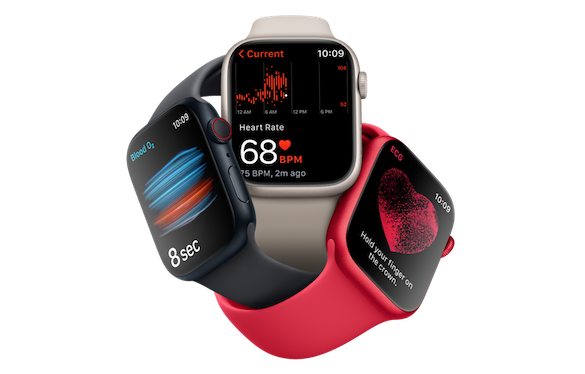Focus oncology development on the patient, manage trial complexity, and increase predictability and speed.
How researchers are addressing risks and opportunities in this groundbreaking area of oncology research
Last August, in a milestone decades in the making, Kymriah became the first cell therapy to be approved by the US Food and Drug Administration (FDA). The approval was based on a groundbreaking clinical study that showed the drug could wipe out the blood cancer in people who had already gone through many unsuccessful rounds of traditional therapy. Just three months after receiving Kymriah, 83 percent of these patients were in complete remission.
Kymriah was the first success story for a new kind of treatment called chimeric antigen receptor T-cell therapy, or CAR-T therapy. These remarkable results set off a frenzy in the biotech world: The same month that Kymriah was approved, Gilead Sciences agreed to pay $11.9 billion for Kite Pharma, which subsequently received FDA approval for its own CAR-T therapy, Yescarta. Later, Celgene paid $9 billion to acquire Juno Therapeutics, a biopharmaceutical company founded in 2013 through a collaboration of the Fred Hutchinson Cancer Research Center, Memorial Sloan-Kettering Cancer Center and pediatrics partner Seattle Children's Research Institute, that doesn’t yet have an FDA-approved therapy.
Unlike conventional drugs that are manufactured in bulk, Kymriah and Yescarta must be made new for every patient. The process starts by removing a person’s T cells, inserting a gene for a synthetic protein called a chimeric antigen receptor, then reinfusing it into the patient to spot and destroy tumors.
The price of remission
Despite all of the excitement generated by these results, there are still significant limitations to CAR-T cell technology. Kymriah and Yescarta treat only people with rare blood cancers. And personalizing medicine comes at a price: A one-time injection of Kymriah costs $475,000. Add the related hospital care and the overall cost of CAR-T therapy can approach $1 million. Health insurers are still grappling with how to pay for that. Although it’s early in Kymriah’s adoption, the therapy brought in only $12 million in sales last quarter.
One of the other issues with CAR-T cells is that they can produce severe systemic inflammation (cytokine release syndrome or CRS) as well as neurologic toxicities, which can be difficult to treat. These toxicities have been responsible for the death of more than a dozen people in clinical trials. Tocilizumab, an anti-IL6 antibody, which was approved for the treatment of several autoimmune diseases has been successful at reducing some of the symptoms of CRS, and has made CAR-T therapy somewhat safer, but it has only modest impact on overall neurological dysfunction. Because of the price, as well as risk of toxicities, CAR-T cell therapy is reserved as a last resort for patients with no other options.
Successful applications of CAR-T therapy have also been more elusive for more common solid tumors, such as lung, colorectal and breast cancer. Solid tumors release a slew of molecules to suppress the immune system and shield themselves from T-cell attack.
The lack of CAR-T efficacy in solid tumors can be due to the environmental barriers that exist (e.g., endothelial cell dysfunction, extracellular matrix barriers, or lack of nutrients,) which prevent migration and infiltration to physically access the tumor. Many tumors also have chronic inflammation with immunosuppressive molecules that express immune checkpoint inhibitor ligands, inducing strong immunosuppression within the tumor microenvironment.
To improve CAR-T function in solid tumors, it is important to focus on improving tumor targeting; defining optimal CAR structures and signaling domains; and synergizing CAR-T cells with the pro-immune and anti-tumor effects of oncolytic viruses, checkpoint inhibitors, and cytokine delivery.
Suicide cells and GoCAR-Ts
There are a growing number of biotech companies devising control systems to make new CAR-T therapies simultaneously safer and more powerful.
- An emergency “kill” switch to the CAR-T cells to address the onset of CRS. Several firms are working on such solutions, including Houston-based Bellicum Pharmaceuticals, which has engineered a safety switch using two engineered proteins that dimerize when exposed to a small-molecule drug called rimiducid. Rimiducid activates a protein called caspase-9, which initiates the process of CAR-T-cell suicide.
- Antibody-based safety switch to induce the suicide of CAR-T cells. The French company Cellectis tags its CAR-T cells with a protein that the cancer antibody rituximab—marketed as Rituxan - can bind. A rituximab injection should cause a patient’s normal immune cells to target and kill the CAR-T cells. Cellectis is working on new versions of CAR-T cells that can be activated or deactivated with small molecules.
- Default state to off. Bellicum has a second CAR-T design that features a default state set to off, engineered to turn on only when the CAR binds a cancer antigen and an activating small molecule drug simultaneously. These so-called GoCAR-Ts should allow doctors to increase T-cell activity and proliferation by raising the dose of that drug, which is rimiducid. Bellicum rewired its GoCAR-Ts to be activated by rimiducid, rather than killed by it, as in the suicide switch-containing cells. This design could allow doctors to scale back CAR-T activity by reducing or halting administration of rimiducid. But the main goal for GoCAR-Ts is to drive the therapy into solid tumors.
- Extended life CAR-T: Bellicum is also attempting to prolong the effective life of the CAR-T cells by using rimiducid to repeatedly pump the gas on the GoCAR-T cells as they search for solid tumors. Interleukin 12 (IL-12) is a potent cytokine known to counteract the tumor’s immunosuppressive environment. It is too potent to be taken as a drug, but letting CAR-T cells produce their own IL-12 could be a safer way to overcome a tumor’s suppressive barriers. Boston-based Ziopharm Oncology is one of several other companies developing CAR T cells that produce either IL-15 or IL-12.
Related solutions
Specialized expertise and customized solutions across 14 therapeutic centers of excellence, including oncology, GI/NASH, pediatrics, neurology and rare diseases.

























